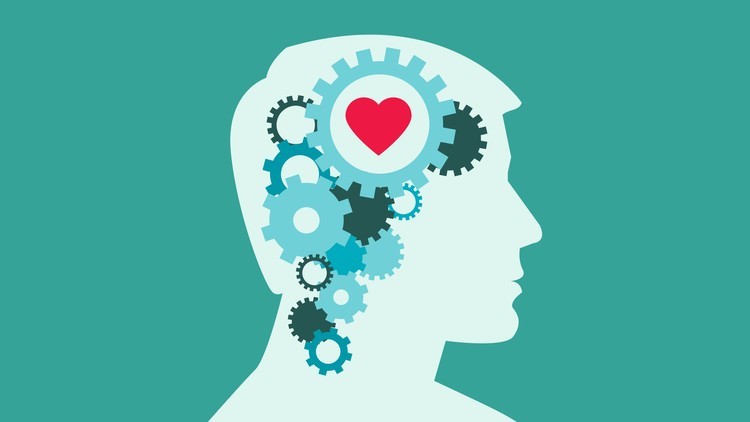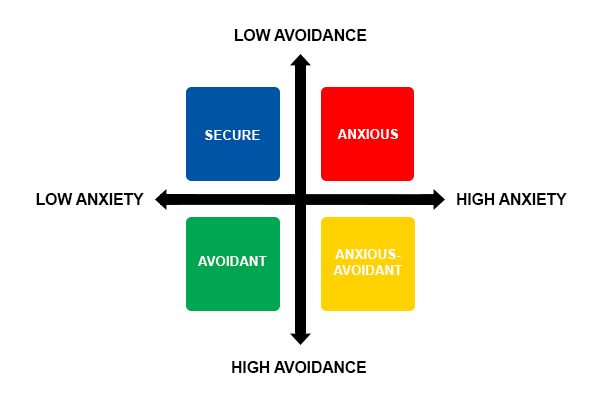|
I often work with clients who are struggling to set boundaries with a narcissist. Narcissists are people with a personality disorder that is characterized by a grandiose sense of self-importance, a need for admiration, and a lack of empathy for others.
Narcissists can be very difficult to deal with, as they often try to control and manipulate the people around them. They may also be very critical and demanding. It is important to remember that you cannot change a narcissist's behavior. However, you can set boundaries to protect yourself from their abuse. Here are some tips for setting boundaries with a narcissist:
Here are some additional tips for setting boundaries with a narcissist:
It is important to remember that you cannot change a narcissist. However, you can set boundaries to protect yourself from their abuse. By setting and enforcing boundaries, you are taking steps to protect your well-being. If you are struggling to set boundaries with a narcissist, please know that you are not alone. There are people who care about you and want to help. Please reach out to a friend, family member, therapist, or other support person for help. I can help. Call Scott at (303) 817) 8369 or email at [email protected] for a free phone or video evaluation. The Relationship Between Sensitivity and Boundary Issues
Sensitive people are often more attuned to the emotions of others and their surroundings. This can be a gift, but it can also make it difficult to set and maintain healthy boundaries. Here are some of the reasons why sensitive people may struggle with boundaries:
Here are some of the ways that boundary issues can manifest in sensitive people:
If you are a sensitive person and you struggle with boundaries, there are a few things you can do to improve the situation:
It's important to remember that you have the right to set boundaries. You don't owe anyone an explanation for why you need to set a boundary. And you don't have to apologize for setting a boundary. Setting boundaries is a way of taking care of yourself and protecting your well-being. Here are some additional tips for sensitive people who struggle with boundaries:
Setting boundaries can be difficult for anyone, but it's especially challenging for sensitive people. However, it's important to remember that you have the right to set boundaries, and that doing so is essential for your well-being. Remember, seeking help is a courageous step towards a more balanced and fulfilling life. You don't have to face these challenges alone. If you're ready to embark on a journey of self-discovery, growth, and healthier relationships, I invite you to schedule a confidential consultation with me. Together, we can work towards a happier, more harmonious life. Take the first step towards healing today. Contact Scott Olds at (303) 817-8369 or email at [email protected] for a free and confidential evaluation by phone or video. Trauma is a deeply distressing or disturbing experience that can have a lasting impact on a person's life. It can affect a person's physical and mental health, their relationships, and their ability to cope with stress.
One of the ways that trauma can impact a person is by affecting their emotional intelligence. Emotional intelligence is the ability to understand and manage one's own emotions, as well as the emotions of others. When a person experiences trauma, they may develop unhealthy coping mechanisms that can damage their emotional intelligence. For example, a person who has experienced abuse may learn to suppress their emotions in order to cope with the pain. This can lead to difficulty identifying and expressing emotions, which can make it difficult to build healthy relationships and manage stress. Another way that trauma can impact emotional intelligence is by creating learned patterns of behavior. These patterns are often developed in childhood as a way to cope with the trauma. For example, a child who is neglected may learn to become self-reliant and independent. This pattern of behavior can be helpful in some situations, but it can also make it difficult to form close relationships as an adult. A psychotherapist can help a person who has experienced trauma to improve their emotional intelligence and break free from learned patterns of behavior. This can be done through a variety of techniques, such as:
By working with a psychotherapist, a person who has experienced trauma can learn to heal and rebuild their emotional intelligence. This can lead to a better understanding of themselves and their emotions, as well as the ability to build healthy and fulfilling relationships. In addition to the techniques mentioned above, a psychotherapist may also use other approaches, such as:
The best approach for a particular individual will depend on the nature of their trauma and their individual needs. A psychotherapist can help to assess the best approach and provide the support and guidance that the person needs to heal. If you or someone you know has experienced trauma, it is important to seek professional help. A psychotherapist can help you to understand and heal from the trauma, and to improve your emotional intelligence and break free from learned patterns of behavior. For help overcoming trauma, contact Scott Olds at (303) 817-8369 or email at [email protected] for a free phone or video evaluation. How the Relationship Style We Learned from Our Parents Influences Us as Adults in a Relationship9/3/2023
As children, we learn about relationships by watching our parents interact with each other. We see how they communicate, how they resolve conflict, and how they show love and affection. These observations become our template for how we expect relationships to work. If our parents had a healthy, loving relationship, we are more likely to have secure attachment styles as adults. This means that we feel confident in our ability to form close relationships and that we expect to be loved and supported by our partners. However, if our parents had an unhealthy or conflictual relationship, we are more likely to have insecure attachment styles. This means that we may have difficulty trusting others, may be afraid of abandonment, or may have a hard time expressing our emotions in relationships. Of course, our relationship style is not determined solely by our parents. Our own experiences and personality also play a role. However, our parents' relationship style can have a significant impact on how we approach our own relationships as adults. Generational Influence The generational influence on relationship styles is a complex topic. There are many factors that can contribute to how we learn about relationships from our parents, including their own attachment styles, their cultural background, and the historical context in which they grew up. For example, people who grew up in families where there was a lot of conflict may be more likely to have insecure attachment styles. This is because they may have learned that relationships are inherently unstable and that conflict is inevitable. On the other hand, people who grew up in families where there was a lot of love and support may be more likely to have secure attachment styles. This is because they may have learned that relationships are a source of comfort and security. It is also important to note that the generational influence on relationship styles can be passed down from generation to generation. This is because children learn about relationships from their parents, who learned about relationships from their parents, and so on. As a result, it is not uncommon for people to find themselves repeating the same relationship patterns that their parents did. This can be a challenge to break, but it is possible with awareness and effort. Here are some specific ways that the relationship style we learned from our parents can influence us in our adult relationships:
Remember, you are not doomed to repeat the relationship patterns you learned from your parents. With awareness and effort, you can create healthy, fulfilling relationships in your own life. Here are some additional tips for breaking the cycle of unhealthy relationship patterns:
If you need help with your relationship, contact Scott Olds at (303) 817-8369 or [email protected].
Navigating the Transition from Hookup Culture to Meaningful Relationships: A Guide for Clients8/25/2023
In today's fast-paced world, where hookup culture often takes center stage, transitioning from casual encounters to meaningful, lasting relationships can feel like a daunting task. The journey might require a shift in mindset, a reevaluation of priorities, and a willingness to explore emotional depths. If you're seeking guidance on how to make this transition, you're not alone. Many individuals are seeking more meaningful connections, and with the right approach, you can find the fulfilling relationship you desire. Here's a guide to help you navigate this transition:
1. Self-Reflection and Clarity: Before embarking on the journey to a meaningful relationship, take time to reflect on what you truly want. What are your values, goals, and aspirations? What qualities do you seek in a partner? By gaining clarity about your own desires, you can better recognize a compatible partner when you encounter one. 2. Open Communication: In hookup culture, communication often revolves around the logistics of the encounter. Transitioning to a meaningful relationship requires a shift toward open and honest conversations about emotions, expectations, and long-term goals. Practice expressing your feelings and actively listening to your partner. Effective communication is the foundation of any successful relationship. 3. Slow and Steady: Meaningful relationships are built over time. Instead of rushing into physical intimacy, focus on building emotional intimacy first. Spend quality time together engaging in activities that allow you to connect on a deeper level. This gradual approach helps establish a strong emotional bond. 4. Shared Activities and Interests: Explore activities you both enjoy. Shared hobbies and interests can bring you closer and create opportunities for meaningful interactions. Whether it's hiking, cooking, art, or music, engaging in activities together fosters a sense of togetherness and shared experiences. 5. Vulnerability and Authenticity: To transition from hookup culture to a meaningful relationship, it's crucial to be vulnerable and authentic. Share your thoughts, fears, and vulnerabilities with your partner. This openness encourages reciprocity and helps establish trust. 6. Mindfulness and Presence: In a fast-paced world, practicing mindfulness can enhance your ability to connect deeply with your partner. Put away distractions and be present in the moment. Listen actively, observe body language, and appreciate the nuances of your interactions. 7. Mutual Respect: Respect is the cornerstone of any healthy relationship. Transitioning to a meaningful connection involves treating your partner with kindness, consideration, and empathy. Recognize and appreciate their individuality. 8. Emotional Intelligence: Understanding your own emotions and being attuned to your partner's feelings is a hallmark of a meaningful relationship. Emotional intelligence allows you to navigate challenges and conflicts with empathy and understanding. 9. Addressing Fear of Commitment: Transitioning from hookup culture may bring up a fear of commitment. It's essential to address these fears and explore their origins. A qualified psychotherapist can assist in unpacking these emotions and providing strategies to overcome them. 10. Seeking Professional Guidance: Transitioning from hookup culture to a meaningful relationship is a journey that can benefit from professional guidance. A psychotherapist can provide insights, tools, and strategies to navigate this transition, offering a safe space to explore your emotions and thought patterns. In conclusion, transitioning from hookup culture to a meaningful relationship requires a deliberate and mindful approach. It's about moving beyond surface-level connections and embracing vulnerability, emotional intimacy, and open communication. Remember that this journey is unique to you, and there's no fixed timeline. Be patient with yourself and your partner as you both navigate this transformation. With the right mindset, effort, and support, you can create a meaningful and fulfilling relationship that goes beyond the confines of hookup culture. For help transitioning from hookup culture to a meaningful relationship, contact Scott Olds at (303) 817-8369 or email at [email protected] What Is Support?Being supportive in a relationship means providing your partner with the following:
Examples Of SupportHere are some examples of how you can be supportive in a relationship:
Therapy HelpsA therapist can help you and your partner be more supportive in your relationship in a number of ways. They can:
As a psychotherapist, I have worked with many couples over the years, and I have seen firsthand what makes for a happy and healthy relationship. While every relationship is different, there are some key ingredients that all happy couples share. Here are the top 5 things necessary for a happy relationship:
If you are struggling in your relationship, please know that you are not alone. There are many resources available to help you, including therapy. A therapist can help you to improve your communication skills, resolve conflict, and build a stronger relationship. If you are interested in learning more about therapy, please visit my website or contact me to schedule a consultation. I would be happy to discuss your individual needs and how I can help you create a happy and healthy relationship. Here are some additional tips for maintaining a happy relationship:
IntroductionCodependency is a complex issue that can severely impact the dynamics of a romantic relationship. It is characterized by an excessive emotional or psychological reliance on a partner, often leading to an unhealthy and unbalanced relationship dynamic. Recognizing the signs of codependency and seeking couples counseling can be instrumental in breaking free from these patterns and fostering healthier, more fulfilling partnerships. In this article, we will explore codependency, its effects on relationships, and how couples counseling can help couples navigate these challenges. Understanding CodependencyCodependency is a behavioral and emotional condition that commonly arises from dysfunctional family dynamics, childhood trauma, or unhealthy attachment styles. Individuals who are codependent often have an intense fear of abandonment, low self-esteem, and a strong desire for external validation. This can manifest in several ways, such as excessively focusing on the needs of others, neglecting personal boundaries, and having difficulty expressing one's own needs and desires. Effects of Codependency on RelationshipsCodependency can have a detrimental impact on the health and happiness of a relationship. Some common effects include:
Couples Counseling as a SolutionCouples counseling provides a safe and supportive environment for couples to address the underlying issues contributing to codependency and work towards healthier relationship patterns. Here's how couples counseling can be beneficial:
ConclusionCodependency can be a challenging issue to overcome, but couples counseling offers a pathway to healing and growth. By addressing the underlying causes and learning healthier relationship patterns, couples can break free from the grip of codependency and cultivate a stronger, more fulfilling partnership. Seeking professional help is a courageous step towards building a healthier future together. Remember, change is possible, and with the right support, couples can break free from codependency and create a relationship built on trust, respect, and mutual growth.
I am excited to announce:
|
AuthorScott F. Olds, Psychotherapist Categories
All
Archives
February 2024
Call Scott at
|
Package Discount: Get a 4-session package for 10% off! Call for details.
I offer sessions in the office, in an open space (weather permitting), by phone, and by video sessions for your safety and convenience. Take a deep breath and give me a call at (303) 817-8369 or email me at [email protected].
Confidential: I am HIPAA compliant, so your privacy is protected.
Crisis Information: If you are in crisis, call Colorado Crisis and Support at 844-493-8255 or the national Suicide and Crisis Lifeline at 988 for 24/7 for help in an emergency. These lifelines provide free and confidential support for people in distress, prevention, and crisis resources for you or your loved ones.
(303) 817-8369
[email protected]
10960 W. 65th Way
Arvada, Colorado 80004
My office is in Arvada, Colorado.
Privacy Policy










